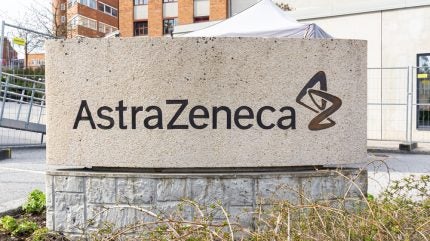
AstraZeneca has signed a definitive agreement to acquire Amolyt Pharma, which specialises in therapies for rare endocrine diseases, in a deal worth $1.05bn.
As per the contract, AstraZeneca will pay $800m upfront along with potential regulatory milestone payments of $250m. The deal is expected to close in Q3 2024.

Discover B2B Marketing That Performs
Combine business intelligence and editorial excellence to reach engaged professionals across 36 leading media platforms.
Amolyt’s lead candidate, eneboparatide (AZP-3601), was a central part of the acquisition. Eneboparatide is a subcutaneous parathyroid hormone receptor 1 (PTHR1) agonist for the treatment of hypoparathyroidism. This condition is caused by a deficiency in the parathyroid hormone that results in decreased calcium and elevated phosphorus levels in the blood. Dysregulation of parathyroid hormone can lead to osteoporosis and chronic kidney disease.
Amolyt launched a Phase III CALYPSO trial (NCT05778071) for eneboparatide in May 2023. Topline data from the trial is expected by the end of this year.
Another candidate in Amolyt’s pipeline is AZP-3813. The therapy is a peptide growth hormone receptor antagonist, which is being developed as a potential add-on to somatostatin analogues for the treatment of acromegaly, a condition associated with abnormally high secretion of growth hormone. It can lead to a variety of complications including heart failure and impaired glucose tolerance. The company initiated a Phase I trial for AZP-3813 in June 2023.
AstraZeneca’s rare disease portfolio generated $7.76bn in global sales in 2023, as per the company’s Q4 financials. The UK pharma giant has been investing heavily in rare disease therapies starting with the $39bn acquisition of Alexion in 2021. Last year, the company paid $1bn to acquire an early-stage gene therapy portfolio for rare diseases from Pfizer.

US Tariffs are shifting - will you react or anticipate?
Don’t let policy changes catch you off guard. Stay proactive with real-time data and expert analysis.
By GlobalDataAccording to a GlobalData report, innovation in rare diseases is seen as a risky investment, with rare oncology indications dominating most of the rare disease pipeline.
GlobalData is the parent company of Pharmaceutical Technology.
Despite this, AstraZeneca has seen some success amongst rare diseases that are not cancer-related. In September 2023, the Phase III trial for a rare vasculitis therapy, Fasenra (benralizumab), met its primary endpoint. The study found that Fasenra was non-inferior to the current standard of care, Pfizer’s Nucala (mepolizumab).
Earlier this year, AstraZeneca reported positive outcomes from its Japan Phase III clinical trial of acoramidis, an investigational treatment for a rare cardiomyopathy, transthyretin-mediated amyloid cardiomyopathy (ATTR-CM).




